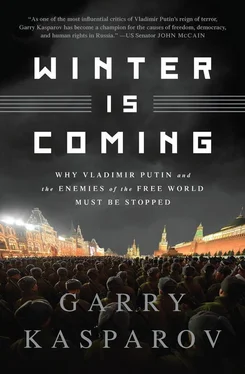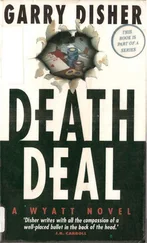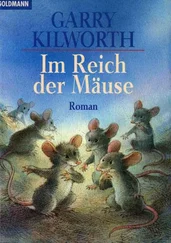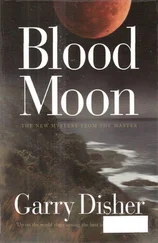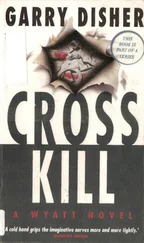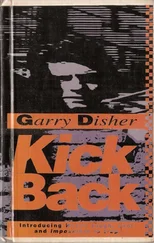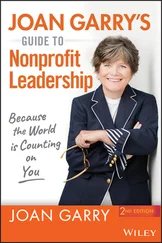All these numbers are tedious, but it is important to counter the popular Russian victimhood myth spread by Putin’s propaganda and by his anti-American, anti-NATO sympathizers around the world. The story goes that Russia was humiliated by the West when the USSR collapsed, leading to resentment and mistrust. They say the Cold War victors “lost Russia” first by not providing enough assistance and then by expanding NATO too aggressively. Both accusations are demonstrably false. As I will discuss in more detail later, if anything the West has been far too willing to forgive and forget the past crimes and dangerous potential of its old enemy.
In reality, many Western leaders became trapped by the idea that Russia was “too big to lose” and had to be supported at all costs even when it was clear they were throwing good money after bad down a hole of post-Soviet corruption and mismanagement. The danger of hardliners kicking out Gorbachev or the Communists coming back and beating Yeltsin was considered too great. The brief August 1991 coup by hardliners against Gorbachev, whether it was real or of Gorbachev’s own desperate orchestration, resulted in an immediate bump in American aid. Similarly, when the Russian Duma challenged Yeltsin’s reforms in 1993, the US Senate immediately responded by pushing through a $2.5 billion aid package that had been delayed.
In Anatomy of Fascism, Robert Paxton includes in his concise definition “the belief that one’s group is a victim, a sentiment that justifies any action, without legal or moral limits, against its enemies, both internal and external.” The myth of Russian humiliation at Western, especially American, hands fits the victimhood model perfectly. The false narrative that Russia is surrounded by enemies who are intent on holding it back fills Putin’s need for fuel for his increasingly fascist propaganda. For similar reasons, Putin’s regime is as obsessed with Soviet suffering and victory in World War II as the Soviet Union ever was. Along with the victimhood claim (in this case, legitimate), the WWII fixation fits the Kremlin’s desire to call all of its enemies fascists, despite all evidence to the contrary. Their bizarre logic goes, “We defeated fascists in WWII, and so everyone who opposes us is fascist.”
Ironically, the roots of Russia’s descent back into totalitarianism can be traced to the West doing too much to respect the legacy of the USSR as a great power, not too little. Russia was allowed to inherit the Soviet Union’s seat on the UN Security Council when that organization, which had been designed to preserve the Cold War status quo, should instead have been reformed to reflect the new primacy of the free world. There were no demands for lustration-investigating and prosecuting, or at least ejecting, Soviet officials for their crimes—while Gorbachev was practically canonized in the West.
Not exactly humiliation, unless you count the embarrassment of needing billions in cash and aid from a former rival, a rival that generations of Soviet propaganda had portrayed as heartless and destructive. The USSR lost the Cold War, and losing is painful. This sentiment, feeling like losers, was a consequence of failing to move on from the nation that vanished under our feet. The USSR lost the Cold War, but it was a victory not just for the United States and the West, but for Russians and all Soviet citizens and everyone living behind the Iron Curtain. We were free to live, to speak, and to think for ourselves. The real loss came when we failed to uproot the KGB system and failed to put misremembered glory days behind us quickly, as most of the European Soviet Bloc succeeded in doing. This left Russia and other former Soviet states vulnerable to the humiliation myth and to men like Putin eager to exploit it.

THE LOST DECADE
Many today seem to have forgotten that the fall of the Iron Curtain, the end of the Cold War, and the collapse of the Soviet Union were distinct events. Closely related events, of course, but by the time the USSR officially disappeared the Berlin Wall had been down for over two years. Anti-Communist revolutions and secessionist movements of various stripes spread across Central and Eastern Europe in 1989, beginning with the Solidarity movement in Poland in April. The wave swept through Hungary, East Germany, Czechoslovakia, Bulgaria, Romania, and Albania.
In my recollection, the Soviet media covered these incredible events with the schizophrenia typical of the glasnost period. In theory, the press was free at this point, but television in particular was still under centralized Kremlin control. Programs that discussed the Baltic uprisings in an insufficiently critical way, for example, could suddenly disappear from the airwaves. It was also in response to these political shifts that a more aggressive form of propaganda began to appear on Soviet television instead of just bland news and light entertainment. The print media had come a long way since the party-line Pravda days before 1985 and periodicals were bold enough to accurately report the fall of one European Communist regime after another. The transformation was remarkably peaceful, with the notable exception of the execution of vile Romanian dictator Nicolae Ceausescu, who had ordered his troops to fire on anti-government protestors and where an estimated eleven hundred people were killed during the violence.
China’s Tiananmen Square protests and massacre should also be mentioned in any discussion of “the Spirit of 1989,” especially since Gorbachev visited Beijing in May, right in the middle of the protests, three weeks before the tanks were sent in to crush the demonstrators. Dictators seem to learn from history much better than democrats, by the way. The Putins of this world view Gorbachev as having been too weak to hold the USSR together and take from Tiananmen the value of brutal force.
Far more blood would soon come from a sadly predictable quarter, Yugoslavia, which, while Communist, had remained officially nonaligned for decades. When dictator-for-life Josip Tito died in 1980, the tight lid he had clamped down on the many ethnic and territorial divisions in the patchwork Balkan nation began to rattle. Federal control was already very weak by the time the European anti-Communist movement arrived and led to the country’s first multiparty elections. But instead of settling things, the elections highlighted the irreconcilable differences among the country’s terribly intertwined republics and its ethnic and religious groups. The ethnic Albanian majority in Kosovo was resentful of the Serbs while separatist parties in Slovenia and Croatia promised independence at the same time Serb leader Slobodan Milosevic worked to strengthen the federal system that he largely controlled. It was a recipe for disaster that would soon become the first test of the post-Cold War security system.
With enough problems already stemming from the 1989 revolutions, NATO and the Western powers were happy to ignore the initial phases of the Yugoslav wars as internal problems. Europe had to figure out how to deal with 130 million impoverished new friends and their fledgling democratic governments. The Bush administration was focused on the USSR and, from August 1990 to February 1991, with the first Gulf War and its aftermath. The US-led coalition to kick Saddam Hussein out of Kuwait was notable for being the first time the two superpowers had been on the same side of a crisis since the end of World War II. The Soviet Union had been Saddam’s main supporter, so the joint US-USSR statement condemning his invasion was another signal that the Cold War was fading. (Although it later turned out that Gorbachev had hedged his bets and left Foreign Minister Eduard Shevardnadze to push the statement through on his own.)
Читать дальше
